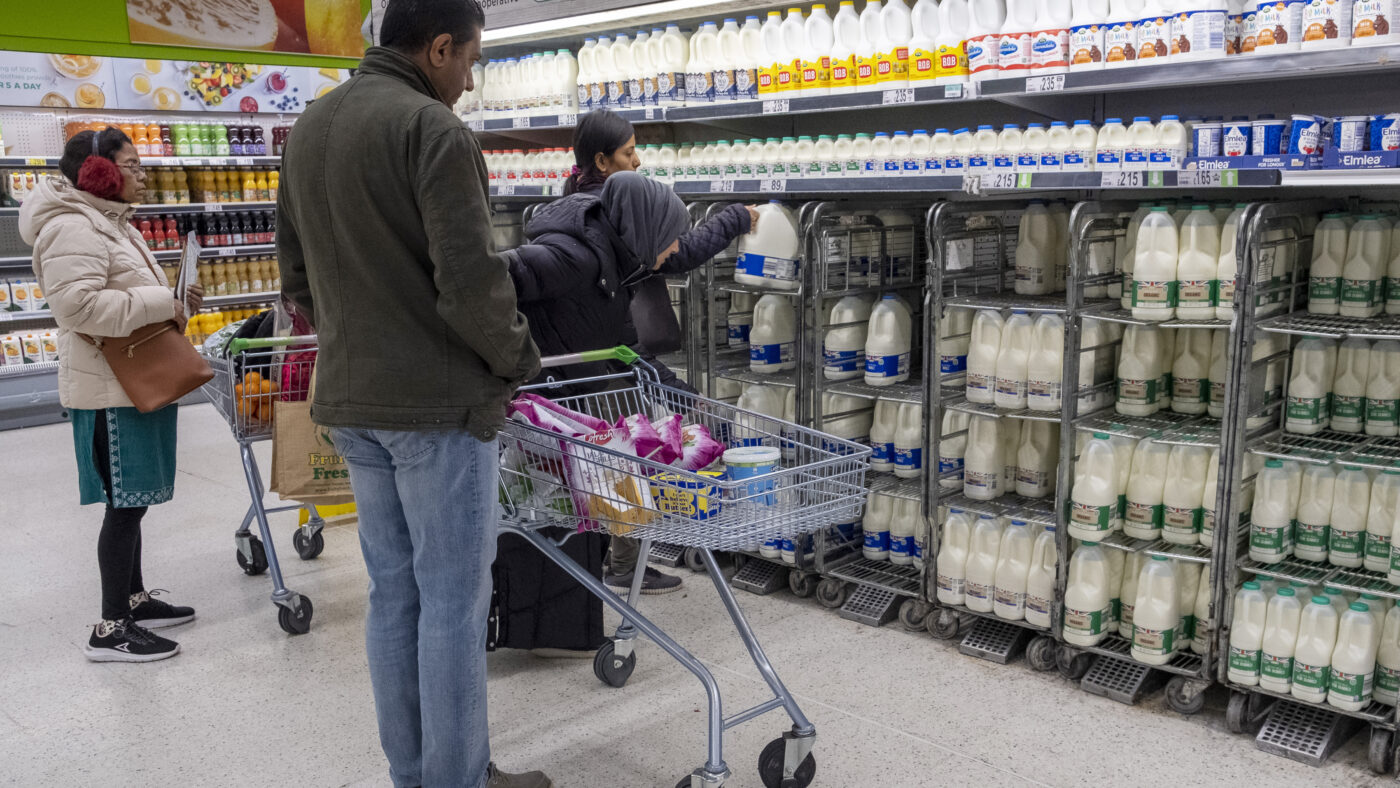Sticklers for spelling may wish to steer clear of supermarkets right now. Newfangled products with names like ‘cheeze’, ‘m*lk’ and even ‘cre&m’ are increasingly prominent in vegan food aisles, with no punctuation marks left behind.
Other brands are finding further ways to wink at conventional dairy terms, branding their offerings as ‘not milk’, ‘cheddar-type’ or even ‘Sheese’. But the war against linguistic innovation may be about to turn in the sticklers’ favour, thanks to an unlikely intervention from Trading Standards officers.
Those responsible for protecting Brits from errant retailers and their suppliers are expected to soon issue guidance that plant-based dairy alternatives should be taken off shelves if they use playful names that reference standard dairy. Officials working at the Food Standards and Information Focus Group have been drawing up these rules since at least early 2022, with publication mooted this spring.
Most leading brands in dairy alternatives would be ensnared in these new guidelines, which are expected to ban most references to milk. Among the products potentially affected are Alpro’s ‘This Is Not Milk’, Violife’s ‘Dairy-Free Cream Cheese’, and The Coconut Collab’s ‘Double Cre&m’, as well as long-established brands like ‘I Can’t Believe It’s Not Butter’.
As well as avoiding misspellings of cheese and milk, the brands may be expected to eschew terms like ‘vegan cheese’, ‘plant-based yoghurt’ and ‘cheddar-type’, according to an earlier version of the guidance seen last May by The Times. Companies offering a ‘mozzarella alternative’ might have to change to the clunky ‘use as an alternative to mozzarella’.
Those who don’t rename themselves would face removal from shelves on the orders of Trading Standards officers. And many of the smaller brands won’t be able to stomach the rebranding costs after several years of pandemic and cost-of-living expenses.
If it seems like a peculiar decision, in some respects it is Trading Standards and the Government accepting changes to maintain the status quo. With dairy terms being protected under transposed EU law, one Trading Standards officer told Greenpeace that his organisation was merely aiming for ‘a fair and balanced view’ on the legislation. That view is that altered spellings and words like ‘alternative’ are effectively using the terms reserved for the dairy industry, according to the draft guidance.
‘If certain parts of the market don’t like that it’s up to them to lobby the government to change the legislation,’ said David Pickering, Lead Officer for food standards at the Chartered Trading Standards Institute. But Government spokespeople have repeatedly said there are no plans to block this change.
That’s mostly to the benefit of trade association Dairy UK, which represents many big dairy companies. Speaking at the group’s annual dinner in September, chair Paul Vernon complained that many plant-based manufacturers ‘trade under dairy names and use dairy values to sell products that have very little in common with dairy’.
‘We believe that the legal protection of dairy terms offers much needed consumer protection,’ he added. ‘It also allows companies to describe their products in a way which is transparent, helpful to consumers, and which ensures fair conditions of competition’.
In a position statement from November 2022, Dairy UK pointed to a survey it had commissioned with YouGov that showed a lack of public awareness on the relative nutritional merits of cow’s milk compared to plant-based alternatives. The association argues that the use of dairy terms gives an impression that plant-based products are equivalent, comparable or substitutions to regular dairy.
In fairness, many plant-based brands have positioned themselves in exactly this way. Plant-based milk can be used in most contexts where cow’s milk might be used, including everything from morning cereal and a cup of coffee to white sauces and custard.
It’s not clear why that’s a problem, or that it is misleading or otherwise hurting consumers. Oat milk might have a different nutritional profile to cow’s milk, but most products in a given category vary in this respect. Consumers who want detailed information already expect to have to check the back of the packet.
This is part of a wider pattern of underestimating the public’s intelligence. Plant-based products are hardly shy in hiding that they are vegan – many of the brands affected are explicitly touting a more ethical, environmentally-friendly and healthy lifestyle to shoppers.
The argument can even be turned on its head. Consumers are actually better informed when products are pitched as alternatives to dairy or even meat products, because it gives them an expectation of what the products will taste like and in what contexts they can be used.
As the Plant-based Food Alliance UK CEO Marisa Heath has pointed out, the effect of the Trading Standards update will be to curb a growth industry for Britain. It is hard to see the dairy industry’s support for it as anything other than a cynical ploy to retain market share. The Government should intervene to stop it.
Click here to subscribe to our daily briefing – the best pieces from CapX and across the web.
CapX depends on the generosity of its readers. If you value what we do, please consider making a donation.


